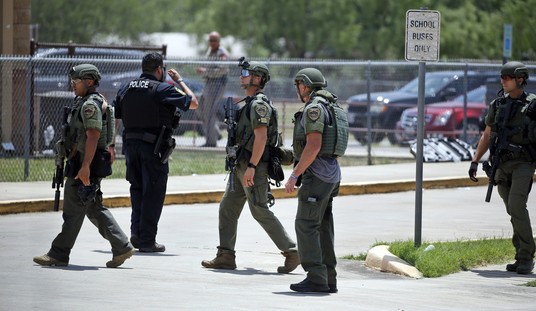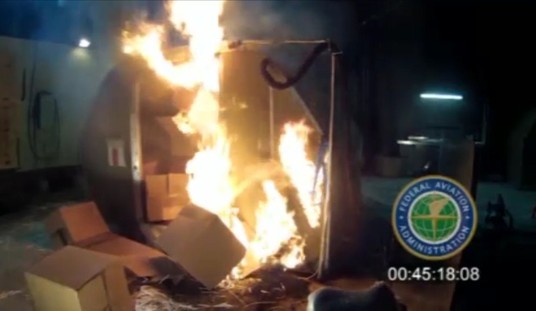Bradley Schlozman calls this a victory, since the US Attorney in DC refuses to prosecute, but the Department of Justice says it accepts the findings that Schlozman perjured himself in the probe about politicization at the DoJ. The internal investigation found that Schlozman, while acting chief of the Civil Rights Division, made hiring decisions based on political affiliations and then lied in testimony to Congress. It gives yet another black eye to the Alberto Gonzales-run DoJ in the second Bush term:
A former acting chief of the Justice Department’s Civil Rights Division considered political affiliations in hiring and personnel actions — which is illegal — and lied in congressional testimony to conceal his misconduct, internal investigators say in a report that was made public Tuesday.
Evidence that the former official, Bradley Schlozman, committed perjury on June 5, 2007, in testimony to the Senate Judiciary Committee was referred to the U.S. attorney for the District of Columbia, who declined to prosecute, the department’s inspector general and Office of Professional Responsibility say in their report.
The 70-page report concludes that the Civil Rights Division “improperly used political or ideological affiliations” in assessing applicants for experienced and entry-level career jobs. It says that Schlozman violated the federal Civil Service Reform Act and department policy that prohibits discrimination in federal employment based on political or ideological leanings.
The report also concludes that senior managers in the Civil Rights Division, including former chiefs R. Alexander Acosta, who’s now the U.S. attorney in Miami, and Wan Kim, “failed to exercise sufficient oversight to ensure that Schlozman did not engage in inappropriate hiring and personnel practices.”
Schlozman may not yet be out of the woods. The current US Attorney in DC may not want to prosecute, but Jeffrey Taylor will not remain in that position for very long. Barack Obama will almost assuredly request his resignation, as is typical at the start of a new presidency for political appointees, and will have to replace him with someone who can get confirmed by the Senate. Undoubtedly, the Senate will take a keen interest in the enthusiasm or lack thereof from any candidate about prosecuting people who perjure themselves to Congress.
Would that be considered a political prosecution? A finding of perjury from the Bush administration’s own DoJ investigators would make that less of a problem. Michael Mukasey himself initiated the probes into the DoJ’s conduct, and while he may not want every case prosecuted, he clearly wanted some kind of action to result from the probe — at least a housecleaning, and perhaps more of an example set for other political appointees in the future.
On the other hand, Taylor may have declined to prosecute because it’s not as easy to win a conviction as it is to write a report. To convict, the state has to prove that the perjury involved something significant enough to obstruct justice (in most cases), and Taylor may have simply felt that no prosecutor could have won in court over this particular violation. It could also have been because politics has always played a role in hiring, but usually handled with more aplomb and deniability than during Gonzales’ tenure.
This doesn’t exactly cover the DoJ in glory, but then again, it’s not like it’s never been political before. Let’s see whether Congress thinks politicization at the DoJ is such a big deal when they start Eric Holder’s confirmation hearing tomorrow. After all, if pressuring career attorneys to change their opinions on politically-beneficial pardons for the President doesn’t set off any alarms, then Schlozman’s missteps won’t even register.








Join the conversation as a VIP Member